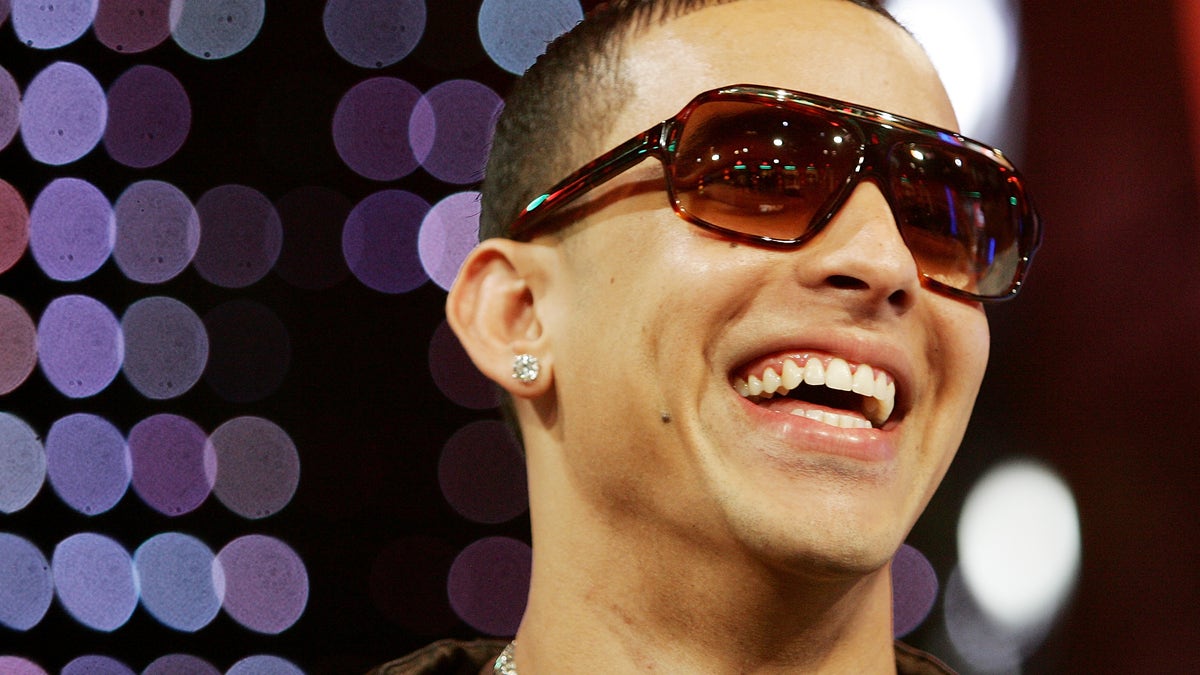
NEW YORK - MAY 30: (U.S. TABLOIDS OUT) Singer Daddy Yankee makes an appearance on MTV's Total Request Live at MTV's Times Square Studios May 30, 2007 in New York City. (Photo by Evan Agostini/Getty Images) (2007 Getty Images)
Ricky Martin is not the poster man for what it means to be gay and Latino in today’s society — in fact, his experience is coated in privileges granted to him by his celebrity status.
Daddy Yankee is not only a victim of fabricated social media-driven news, which accused him of being gay, he is also a victim of the machismo and homophobic culture that saturates the Latino community.
The lack of conversations about the experiences of LGBT Latinos is problematic because it continues to disregard the added cultural burden that LGBT Latinos face as it pertains to bullying, homelessness, and HIV, just to name a few.
Having denied the rumors, Yankee, who is known for his reggaetón music with songs like “Gasolina,” had to combat the frenzy that surrounded his sexual orientation. The Puerto Rican artist had to proclaim his heterosexuality, which leaves one wondering why his sexual orientation mattered in the first place.
Without much inquiry it becomes apparent why his sexual nature would be of such interest—machismo relies on strict gender norms in order to operate, and being a gay man is going against the definition of manhood.
A discriminatory commentary began to flood social media, alleging that Daddy Yankee is now somehow less of a man, and some even dubbed him “Mamma Yankee.”
What does this say about one of the largest growing minority groups who politically played a huge role in the recent presidential election? It says that regardless of the shift within society about the lesbian, gay, bisexual and transgender community or how accepting people are of same-sex marriage, to be a person of color who is lesbian, gay, bisexual, or transgender means to be a double minority — struggling to find absolute acceptance both within the Latino and LGBT community.
Within the Latino community and other people of color communities, discussions on LGBT individuals continue to be met with much resistance from families and the church. The lack of conversations about the experiences of LGBT Latinos is problematic because it continues to disregard the added cultural burden that LGBT Latinos face as it pertains to bullying, homelessness, and HIV, just to name a few.
It would be in poor taste to fail to mention that some people spoke out in support of Daddy Yankee as it pertained to his sexuality but that does not negate the fact that we must begin to talk about the mistreatment of our LGBT Latinos.
The language we use to shape those conversations, the choice to abandon the sexist machismo ideology, and the choice to love your family member or friend regardless of their sexual orientation or gender identity/expression symbolizes what family should really be about — love.
Let us not marginalize gay Latinos as the overtly flamboyant queens that the media often portrays us as, recognize that like the various shades of our skin color, LGBT Latinos are all different, some of us are even rappers, actors, and athletes.
For many Latinos, the “closet” is the only option; it means remaining a part of the only community they have, even if the price to pay is silence. Let’s not mistake the love and acceptance Ricky Martin experiences overall as a representation that our community has truly progressed — we have yet to make significant strides in this struggle.
Ideally, one would love to see society get to the point where an individual’s sexual orientation is not the cause of a media frenzy, that a celebrity like Daddy Yankee would not have to defend and proclaim his heterosexuality simply because we as Latinos continue to talk down on those who are LGBT.
Hop off the social media bully pulpit and recognize the weight of your words, and learn to fully embrace your community, gay or straight. At the end of the day, we are all Latinos.
